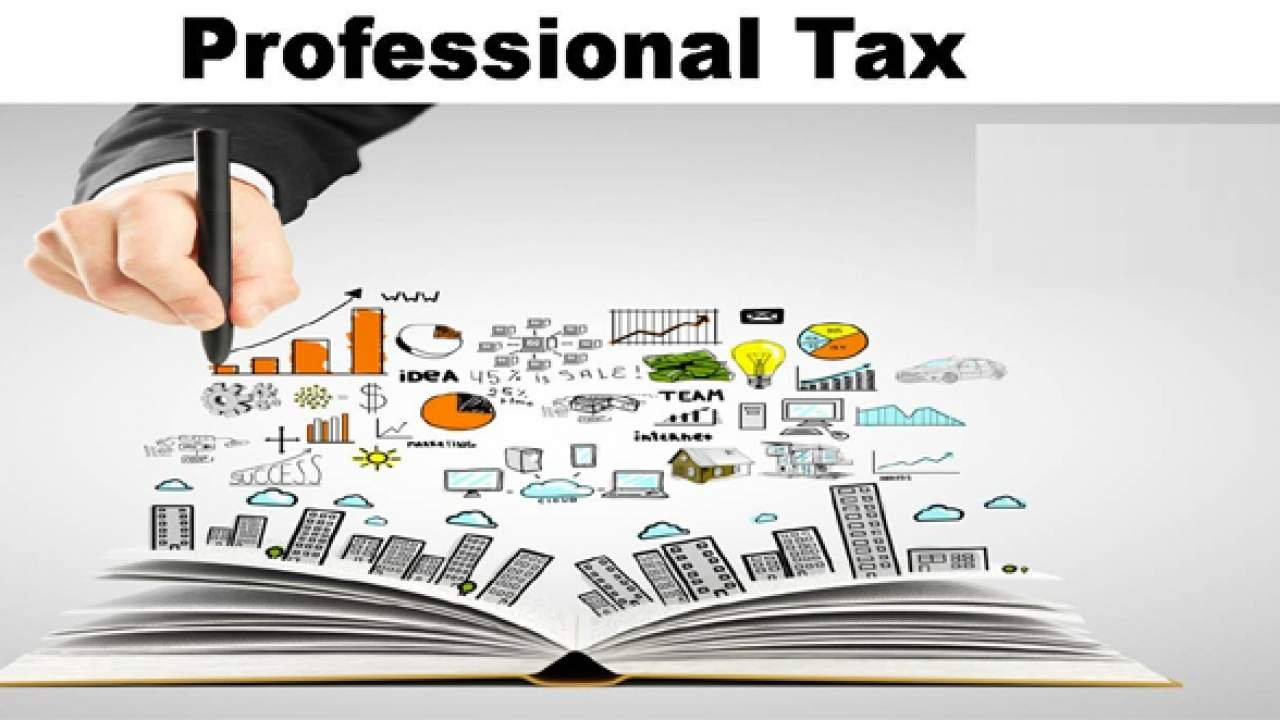Professional Tax Eligibility in India
 Both professional and income tax are different from each other. While the Central government collects the income tax, State governments handle the collection of the professional tax. The professional tax is quite common among employees who receive salaries. The Commercial Tax Department is in charge of collecting professional tax in India. The respective commercial tax departments of the state collect this tax. This in turn reaches the municipality corporation fund. Here’s a quick look at everything you need to know about the Professional tax eligibility in India.
Both professional and income tax are different from each other. While the Central government collects the income tax, State governments handle the collection of the professional tax. The professional tax is quite common among employees who receive salaries. The Commercial Tax Department is in charge of collecting professional tax in India. The respective commercial tax departments of the state collect this tax. This in turn reaches the municipality corporation fund. Here’s a quick look at everything you need to know about the Professional tax eligibility in India.
Why is it different?
Unlike the name suggests, professional tax is not implied for only professionals. It is levied on all kinds of trades, professions, and other types of employment. Profession tax eligibility narrows down to all the individuals who own a business or work as a freelancer.
The total annual professional tax is divided into twelve equal installments. Each installment is paid every month, except in February, wherein the amount is higher.
Who are all eligible for paying professional tax?
If you are having an income and living in the state (mentioned below in the list), you need to pay the professional tax. The owner of the business is in charge of deducting the salary of his/her employees and depositing the collected amount to the relevant government. Depending on the business’s nature, the tax is levied and is paid monthly, semi-annually, or annually.
Professional tax is levied by each state and it is considered as state revenue. The tax is also payable by a member of the private company. Professional tax for any state is Rs. 25,000.
Professional tax differs from state to state, since the state government collects it. Depending upon the tax slabs in place in the state, the amount of professional tax collected differs. Also, some states and union territories do not charge professional tax.
It is imposed on people in the following states:
- Chhattisgarh
- Sikkim
- Gujarat
- Madhya Pradesh
- Tamil Nadu
- Andhra Pradesh
- Tripura
- Odisha
- Bihar
- Maharashtra
- Karnataka
- Telangana
- West Bengal
- Assam
- Meghalaya
- Kerala
Who collects the tax?
The employer collects the professional tax from the monthly salaries.
Then, the government receives the amount from them. Penalties will be imposed if they do not collect the tax.
If the person is not working for anyone, then he/she must pay the professional tax by themselves. They can make such payments through specific forms released by the Tax Department. Soon after the individual receives the form, he/she will receive a registration number.
In some states, the government also provides rebates on professional taxes. If the tax is a lump sum of years together, they provide the rebates.
Documents required for professional tax registration for a Company:
The following documents are mandatory for professional tax registration:
- PAN card/ LLP of the company
- Bank account details
- Incorporation Certificate, MOA & AOA
- NOC
- List of Directors
- Passport size photographs of the Directors
- Address proof of the directors
- Board Resolution or consent statement of partners
- Salary details
- A certificate from Commercial Tax Department
Professional tax applicability:
The professional tax applies to the below-mentioned list of people:
- Legal practitioners such as solicitors
- Contractors
- Societies
- HUF
- Associations
- Companies
- Firms
- LLPs
- Corporations
- Clubs
- Architects
- Engineers
- Insurance agents
- Chartered Accountants
- CS
- Surveyors
- Tax consultants
- Management consultants
- Doctors, medical consultants, and dentists (medical representatives)
Exemption in professional tax:
The following mentioned people need not pay professional tax:
- People in CPMF-Central Para Military Force
- Those who run educational institutions, up to class 12
- A woman who has one child and has undergone a sterilization operation.
- An ex-serviceman who comes under SI No.1 (Schedule)
- A handicapped individual with at least 40% disability.
- Blind, deaf, and dumb individuals who earn.
- A person who has a permit for a single three-wheeler or a single taxi to carry goods.
- People who are a part of the armed forces (Civilian non-combatant and combatant members)
- A foreign person or technician who is employed by the state.
- Any philanthropic and charitable hospital that is present in places that come under the taluk level.
- Exemption for a guardian or parent whose children with a mental disability or permanent disability.
- Any individual above 65 years of age
- Temporary workers employed in the textile industry
- Female agents under the Mahila Pradhan Kshetriya Bachat Yojana
Consequences:
The following repercussions might occur in case you fail to follow the Professional tax laws of your state.
- If the person fails to register, he/she is liable to a penalty for the particular time duration he/she was unregistered.
- If the person fails to deposit the amount to the government or if he pays late, the same happens.
- In case an individual does not deposit the required amount, the officials will collect the amount due along with the penalty and interest incurred. In serious cases, a prosecution takes place and the defaulter will have to fight a court case.
Frequently Asked Questions:
How do I get a professional tax certificate?
To receive a professional tax certificate, visit the professional tax website of your respective state, and fill the relevant forms.
Who is liable for professional tax?
Any person who earns an income in the state must pay a professional tax to the state authorities. The person should register for his/her tax payment
- Is professional tax mandatory?
Yes, it is mandatory to pay professional tax if you are having a certain income.
- Is Professional tax applicable in Union territories?
Since the union territories are smaller regions of the country, they generate only lower revenues compared to other states. Thus, professional tax is not levied on any of the individuals in union territories.
- What is the rule for professional tax?
A maximum amount of rupees 2,500 per year can be levied as a professional tax on any person. According to Section 16 (iii) of the Income Tax Act 1961, this tax can be deducted from their salaries.




